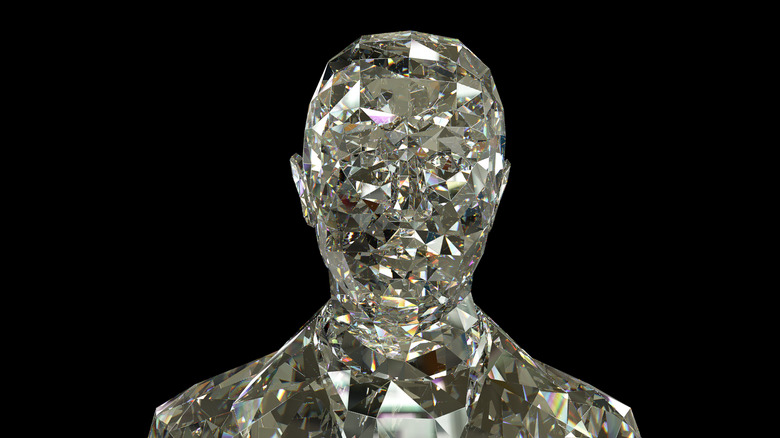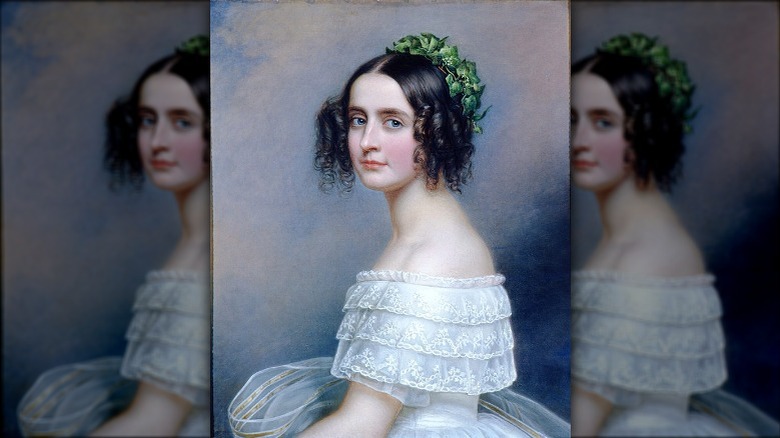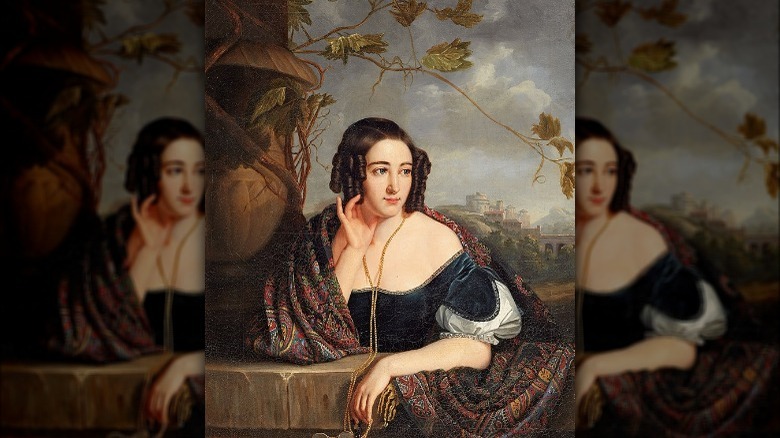The Strange Affliction That Had Some Royals Believing They Were Made Of Glass
In previous centuries, monarchs believed in the Divine Right of Kings, or the idea that they received their right to rule from God, himself, and that they were therefore not subject to any other kind of human authority. Anyone who supports that notion had some unusual ideas about how the world works, so perhaps it's not surprising that from the Medieval period through the early modern era in Europe, some members of the monarchy lived with another odd belief, claiming they were — or that some parts of their bodies, at least — were made of glass.
Prior to 1830, that rare psychiatric phenomenon — referred to as the glass delusion, according to BBC News — was relatively common among assorted members of the monarchy all over Europe, beginning as early as King Charles VI of France who ruled in the late 14th and early 15th century and lasting for hundreds of years. It even cropped up in a Miguel de Cervantes' short story from the early 17th century called "The Glass Graduate." In the first few decades of the 19th century, though, the issue of the glass delusion — among royals, at least — seemed to somehow take care of itself. Cases have continued in the general population, though, and experts still aren't quite sure what causes it.
A Bavarian princess believed she swallowed a glass grand piano
One later example of the glass delusion among royalty is the story of Princess Alexandra of Bavaria (now Germany), according to BBC Culture. Alexandra (pictured) didn't believe her body was made of glass, but instead, she claimed as a young child, she swallowed a grand piano made from glass and as a result, she had to move carefully or the glass inside her might shatter. Like King Charles VI of France, another well-known monarch who lived with glass delusion, today, it's thought Alexandra likely lived with the mental health condition we know today as Obsessive Compulsive Disorder or OCD.
As History points out, modern scholars note King Charles VI may have lived with schizophrenia. The widely held notion that members of royal families were something rare and unusual may have worsened the issue in some cases, something like a god or goddess on earth to be treated carefully and with reverence or else they might break. No matter what the cause may have been, glass delusion was a common enough occurrence in the 17th century, in fact, to be included in the "Anatomy of Melancholy" a medical compendium by Robert Burton. Renowned French philosopher Rene Descartes also wrote of the condition.
An instance of glass delusion was reported in 2015
Notably, prior to the advent of glass itself paralleled early instances of the glass delusion, and prior to glass, individuals reportedly claimed to be made from pottery or earthenware, per BBC Culture. For this reason, modern scientists think that anxieties over advancing technology may also be a factor. In 2015, a Dutch psychiatrist encountered a case of glass delusion in a patient. Assorted yet sparse cases of glass delusion have also been recorded throughout the 20th century, though not in royalty. In the 1880s, a mental hospital in Edinburgh, Scotland chronicled 300 female patients' symptoms. One woman's complaints were consistent with glass delusion.
Faced with the opportunity to study a possible case of glass delusion in the modern era, Dutch psychiatrist Andy Lameijn said his patient referred to the glass in the window and said, like that glass, he was both "there, and I'm not there." Other modern scholars have paralleled similar modern notions about digital technology literally invading our minds and bodies in microchips as a similar set of beliefs, largely based on anxiety. It's not known if Princess Alexandra of Bavaria — the European royal who claimed she swallowed a glass grand piano (pictured) — ever recovered, though she did go on to become a writer.


